Republican legislators will defend Arizona law banning abortion due to ‘genetic abnormalities’
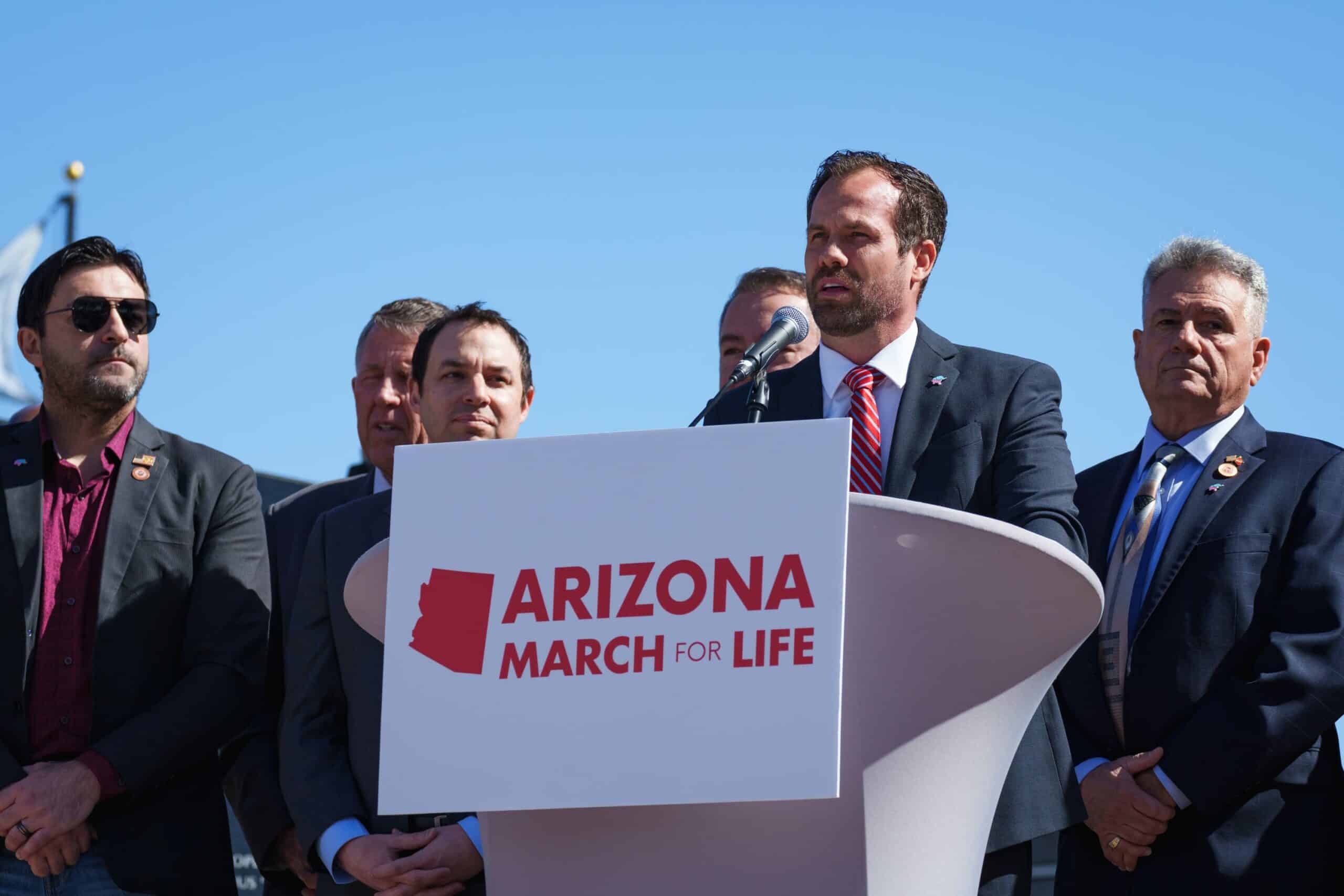
This post was originally published on this siteThe lawsuit might have folded because Democratic Attorney General Kris Mayes wouldn’t defend what she has called an “unconstitutional” law.
House Oversight Chair Comer quietly subpoenas bank records for Hunter Biden business associates
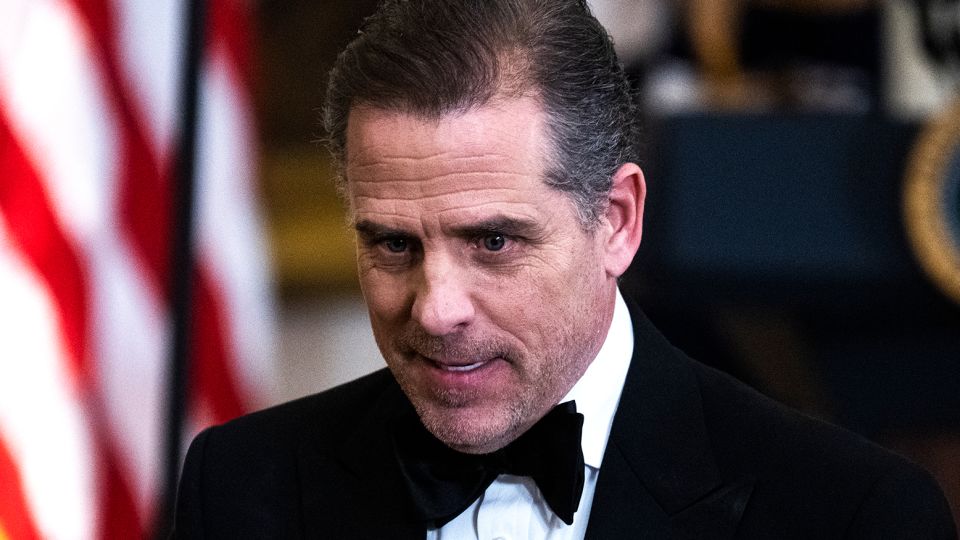
House Oversight Chairman James Comer has quietly subpoenaed Bank of America asking for records relating to three of Hunter Biden’s business associates, the committee’s ranking Democrat, Rep. Jamie Raskin, disclosed in a letter sent to Comer on Sunday.
Why the 2024 Iowa caucuses could make or break Donald Trump’s presidential campaign
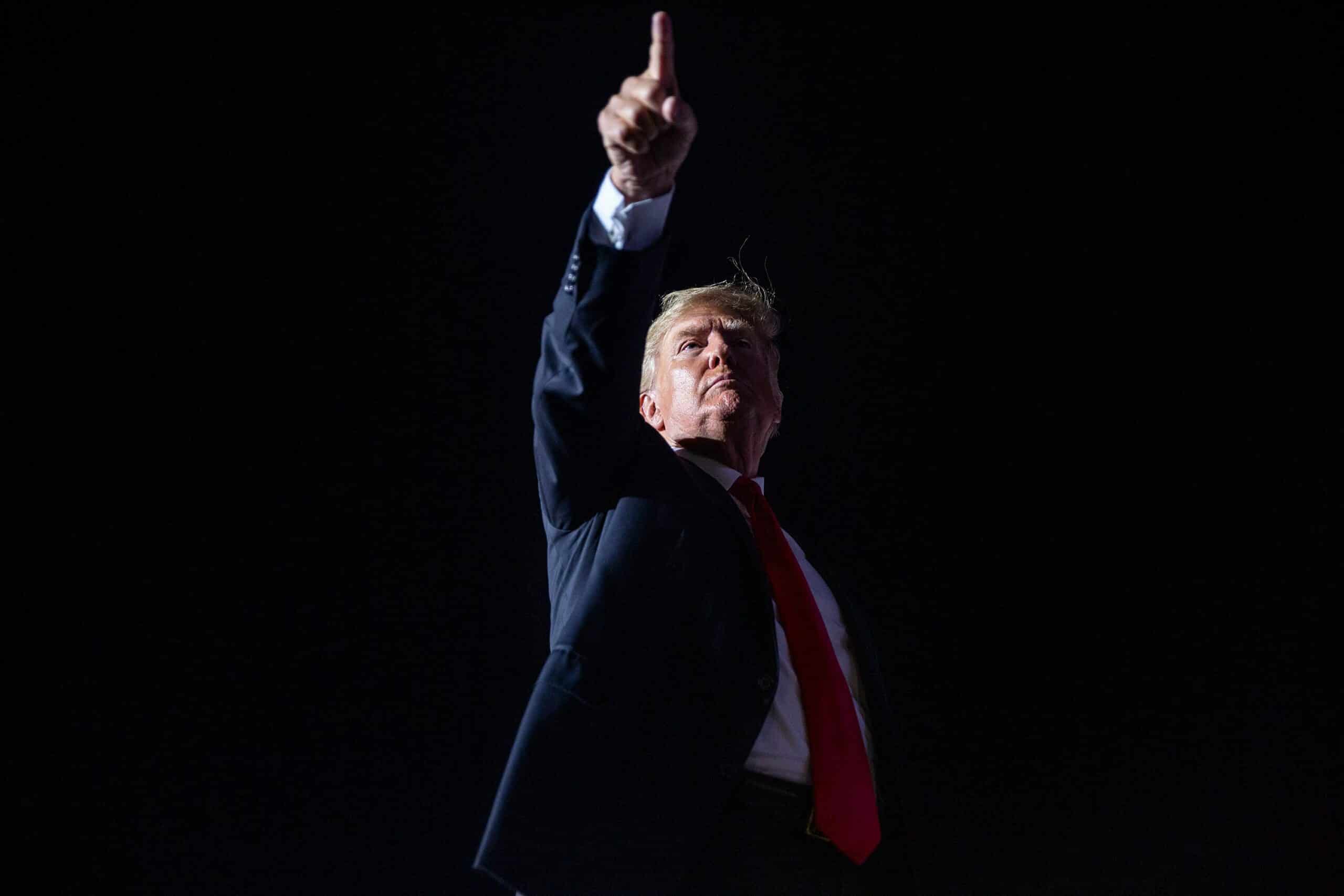
This post was originally published on this site“This is a cycle where we certainly will need to winnow out who’s a pretender and who’s a contender,” said one Iowa Republican political consultant.
Michigan man charged with illegal firearms possession after allegedly threatening governor and Biden
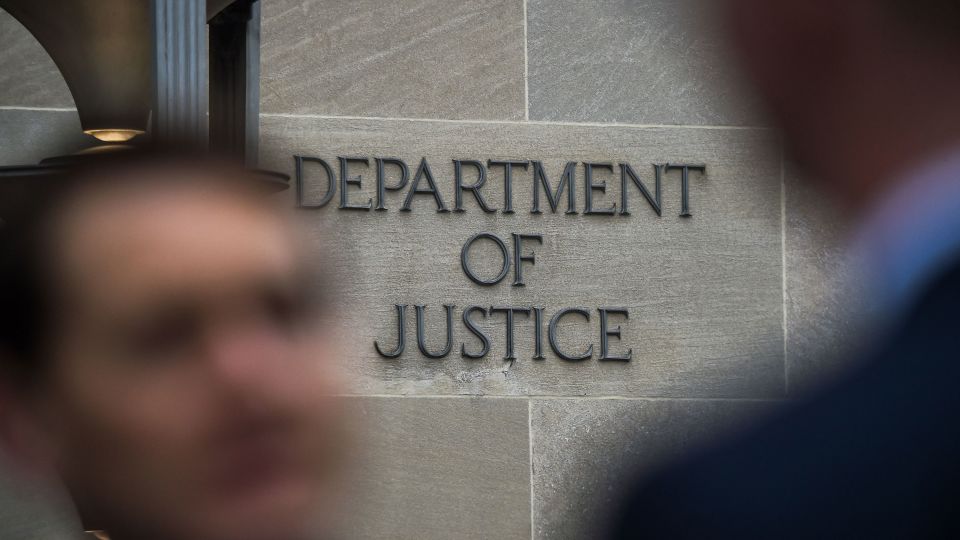
A Michigan man has been charged with unlawfully owning several firearms after federal agents uncovered online death threats he allegedly made against Gov. Gretchen Whitmer and President Joe Biden.
Jobs report: Employers added 311,000 jobs in February as hiring slowed; unemployment rose to 3.6%

This post was originally published on this siteLabor Dept: U.S. employers added 311,000 jobs in February as hiring slowed after booming gains the prior month, jobs report shows. Unemployment rose to 3.6%.
Biden White House keeps confronting a good problem: A hot labor market
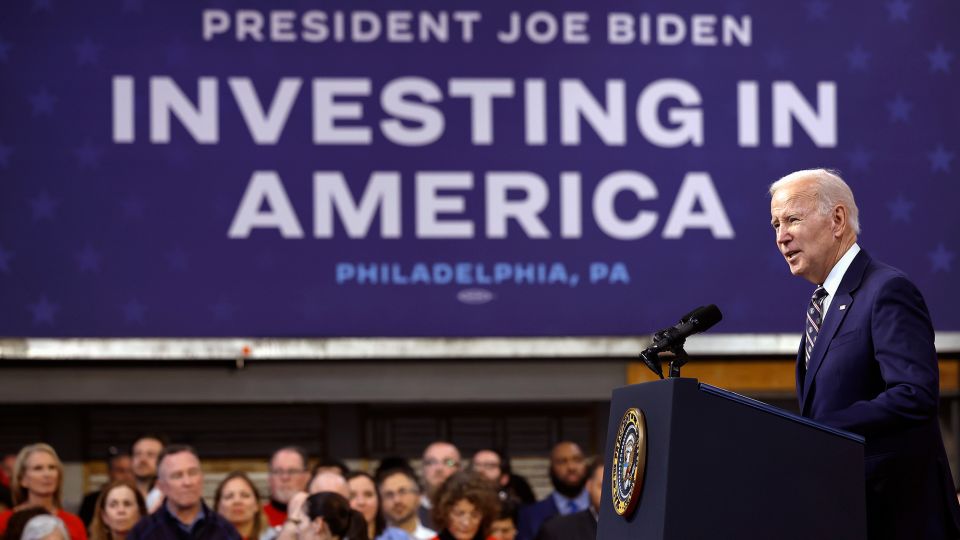
The Biden White House is once again rooting for a Goldilocks jobs number on Friday, as the Federal Reserve considers increasing its pace of interest rate hikes in the coming weeks as a part of its ongoing efforts to tame inflation.
America’s ‘cataclysmic’ drop in college enrollment
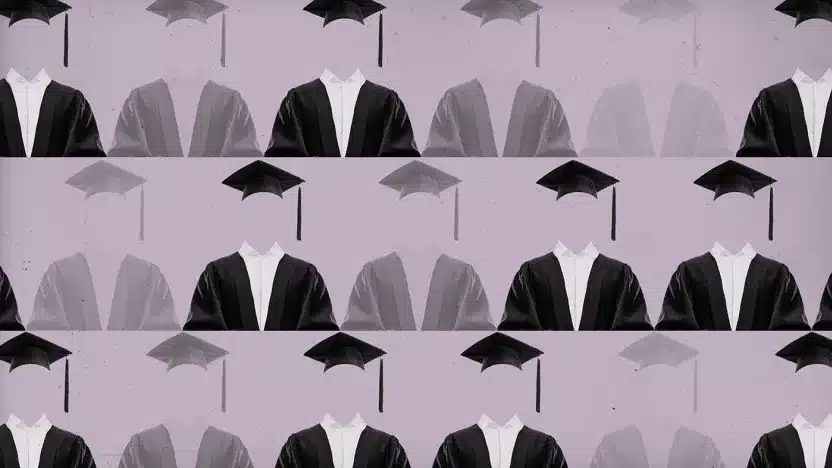
A growing number of American high schoolers are taking a look at college — and taking a pass.
College enrollment for recent high school graduates rose for decades, peaking at 70.1 percent in 2009, according to the U.S. Bureau of Labor Statistics, before fluctuating for a decade — and plummeting 8 percent from 2019 to 2022, The Associated Press reports. “The slide in the college-going rate since 2018 is the steepest on record,” especially for men.
U.S. Bureau of Labor Statistics
“With the exception of wartime, the United States has never been through a period of declining educational attainment like this,” and “it is literally cataclysmic,” Michael Hicks, director of the Center for Business and Economic Research at Ball State University’s Miller College of Business, told The Hechinger Report at the start of the 2022-23 school year. “It’s quite a dangerous proposition for the strength of our national economy,” Zack Mabel, a Georgetown researcher, tells AP.
What are the commentators saying?
It’s pretty clear the COVID-19 pandemic “reversed decades of progress” in rising college enrollment numbers, AP reports. “Rates fell even as the nation’s population of high school graduates grew, and despite economic upheaval, which typically drives more people into higher education.”
“The pandemic certainly made things worse,” but the downturn in college enrollment “took hold well before it started,” Jon Marcus writes at The Hechinger Report. “Focus groups and public opinion surveys point to other, less easily solved reasons,” including “widespread and fast-growing skepticism about the value of a degree, impatience with the time it takes to get one, and costs that have finally exceeded many people’s ability or willingness to pay.”
Colleges “continue to advertise prices that few consumers actually pay but that discourage many from applying,” Marcus reports, and “more than 4 in 10 bachelor’s degree holders under 45 don’t agree that the benefits of their educations exceeded the costs, according to a survey by the Federal Reserve.” Add in the average $31,000 in student debt owed by today’s graduates — a 317 percent rise since 1971, adjusted for inflation — and the student loans many high schoolers’ parents are still paying back, he adds, and “that adds up to a lot of bad reviews passed down to younger siblings and classmates, for whom family and friends are the most trustworthy sources about whether to go to college.”
“We are heading into a world where a flat screen TV that covers your entire wall costs $100, and a four year college degree costs $1 million, and nobody has anything even resembling a proposal on how to systemically fix this,” Silicon Valley investor Marc Andreessen wrote in a recent Substack post.
Along with the “perception that cost is out of control,” “anti-elitism, anti-institutionalism” has fed a sharp drop in Americans’ faith in higher education from 2015 to 2019, Gallup’s Stephanie Marken says.
At the same time, “many jobs that previously required a college degree can now be filled by people with vocational training or apprenticeships,” Matthew Lynch writes at The Edvocate. And “there is a growing recognition that college is not the right path for everyone. Some students may have other priorities or interests that require them to pursue other paths, such as starting their own business or pursuing a career in the arts. Others simply may not be a good fit for the academic rigor and structure of college and may thrive better outside of the classroom.”
What’s next?
Dropping enrollment is bad for colleges, but the U.S. economy could ultimately take a hit, too, AP reports. “Fewer college graduates could worsen labor shortages in fields from health care to information technology.”
Having a college degree also leads to better economic outcomes for individuals, including more job resilience when the economy turns sour. People without a college degree can also expect to earn 75 percent less over their lifetime — or $1 million less — than those with a bachelor’s degree, according to Georgetown University’s Center on Education and the Workforce. And more than half of “good jobs” call for at least a bachelor’s degree.
Pew Research Center
The millions of missing college-educated workers will cost the U.S. $1.2 trillion in lost economic output over the next decade, the center-right American Action Forum estimates. The U.S. was No. 2 among developed nations in 25- to 34-year-olds with bachelor’s degrees in 2000, and now it’s 16th, The Hechinger Report’s Marcus writes, citing a University of Pennsylvania analysis. In that time, the Top 15 developed nations, on average, have increased bachelor’s degree attainment by 177 percent.
On the other hand, the U.S. hasn’t been sliding backwards. There were 21.3 million more Americans with bachelor’s degrees in 2021 than in 2001, according to the U.S. Census Bureau, and between 2011 and 2021, the share of people age 25 and older with a bachelor’s degree or higher increased by 7.5 percentage points to 37.9 percent, from 30.4 percent.
U.S. Census Bureau
U.S. colleges can “improve their value proposition” by better addressing the needs of today’s students, including “reducing the time commitment, cost, and in-person requirements” while “increasing the relevancy of today’s curriculum to include a focus on preparing students for a technology-driven, skills-based economy,” suggests Daniel Rosensweig, CEO of education technology firm Chegg.
“Educational technology and remote learning are not a panacea — there will always be a place for the in-person pedagogical experience,” he adds. But more than a third of today’s college students are 25 or older, 24 percent are parents, and 64 percent work full- or part-time jobs, according to the Lumina Foundation, and “we cannot cling to the model of the 18-year-old college student with no other demands on their time” anymore.
President Biden’s shifting views on immigration
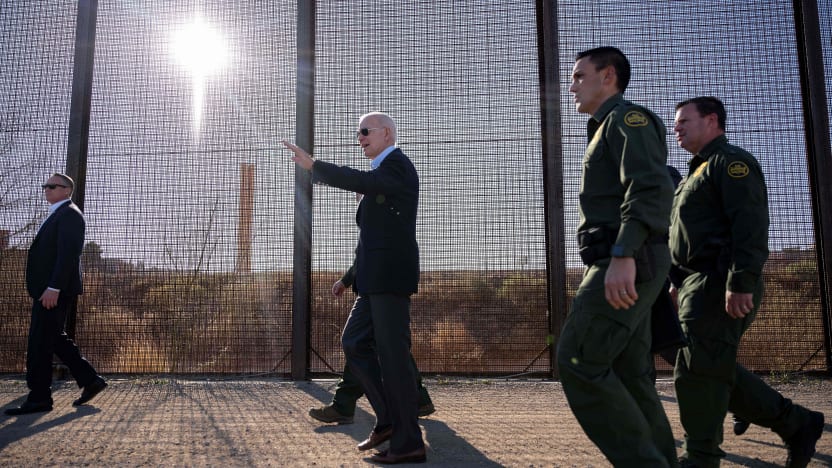
President Biden’s time in the White House has been marked by shifting views on immigration. Biden has revoked rules that would hinder immigrants from becoming citizens, and also proposed reforms to crack down on illegal immigration. Reports suggest the president is considering reinstating the controversial practice of detaining migrant families. Where, exactly, does he stand on the issue?
What is the Biden administration’s immigration policy?
The White House is focused on reducing “the number of individuals crossing unlawfully between ports of entry” by increasing border security, according to a fact sheet released by the White House. Biden extended the controversial Title 42, enacted by the Trump administration during COVID-19. This portion of the U.S. Code allows expulsions of immigrants on the basis of public health safety. Despite Biden pledging to end the practice when he took office, in January of 2023 he announced new policies that “would essentially expand” the allowance of expulsions, PBS News notes, and permit restrictive immigration policies to continue even as the COVID-19 emergency declaration is set to expire in May and render Title 42 moot. Biden’s replacement plan for Title 42 is the “toughest policy yet to crack down on unlawful entries,” The New York Times says.
Biden’s Venezuela initiative, which was put forth in Oct. 2022, sought to stem the flow of migrants coming to the United States from Venezuela. Migrants looking to enter the U.S. from Venezuela “will have to apply, have a sponsor in the U.S., and undergo screening and vetting, as well as complete vaccinations,” CNN reports. The initiative “resulted in a dramatic drop” in illegal immigration from Venezuela, the White House claimed, and the administration is looking to implement the program on a wider international scale.
For those looking to enter the country legally, the administration has pledged to allow up to 30,000 immigrants per month to enter the U.S. from Haiti, Venezuela, Nicaragua, and Cuba, and will also triple immigration quotas from Caribbean nations. The White House says that this will create an easier path to legal citizenship for those seeking asylum.
Have Biden’s views on immigration evolved over time?
Both Biden and his vice president, Kamala Harris, “have built their careers in Democratic politics in part by touting their families’ immigration stories,” writes The Washington Post. On the campaign trail, Biden expressed regret over the Obama administration’s immigration policies, which “deported hundreds of thousands of people without criminal records,” The Associated Press says. He called the practices a “big mistake” and promised to expand legal immigration and the asylum process, should he be elected. “We stand up and act like [immigration is] a burden,” he said. “It is not a burden. It’s a gift.”
When he took office, he appeared “one of the most liberal Democratic presidents on immigration yet,” taking aim at Trump immigration policies even while “border apprehensions swelled,” the Post says. But then he ran into the “hard reality of border politics.”
Administration officials pointed their fingers at Republicans, but also Congress, saying it failed to pass legislation overhauling immigration laws, The New York Times reports. They said Biden’s new measures would discourage those without legitimate asylum claims from trying to cross the border.
What has the reaction been?
Biden has faced criticism for his alleged flip-flopping on immigration policies, particularly when it comes to expulsions. Biden’s proposal to stop migrants “represents a blatant embrace of hateful and illegal anti-asylum policies, which will lead to unnecessary human suffering,” said Marisa Limón Garza, executive director of Las Americas Immigrant Advocacy Center, per The Guardian.
Is Biden “stuck in the Trump era?” asks The New Yorker. “Biden to replace Trump migration policy with Trump-esque asylum policy,” blares Politico. Still, the number of border-crossing attempts has dropped by 40 percent since December, Politico reported, and the administration is eager to take the credit.
Republicans insist Biden doesn’t have the border situation in hand. He has “lost control of the U.S.-Mexican border,” Sen. Lindsey Graham (R-S.C.) said. The GOP has offered its own immigration proposal that would funnel more resources into border security, protect DREAMers, create more visas for agricultural workers, and offer a 10-year path to ” a renewable legal status for undocumented immigrants who have not committed any crimes,” The Hill explains.
Recent reports suggest Biden, “squeezed at the border,” is considering reinstating one of the most controversial immigration policies: detaining migrant families. The practice, The New York Times notes, was used by Trump, as well as former Presidents George W. Bush and Barack Obama.
“Ending the inhumane practice of family detention has been one of the only positive immigration policy decisions of the Biden administration,” deputy litigation director at Children’s Rights in New York City, told the Times. “It is heartbreaking to hear” it could return.
DeSantis moves his presidential ambitions into the open with Iowa visit
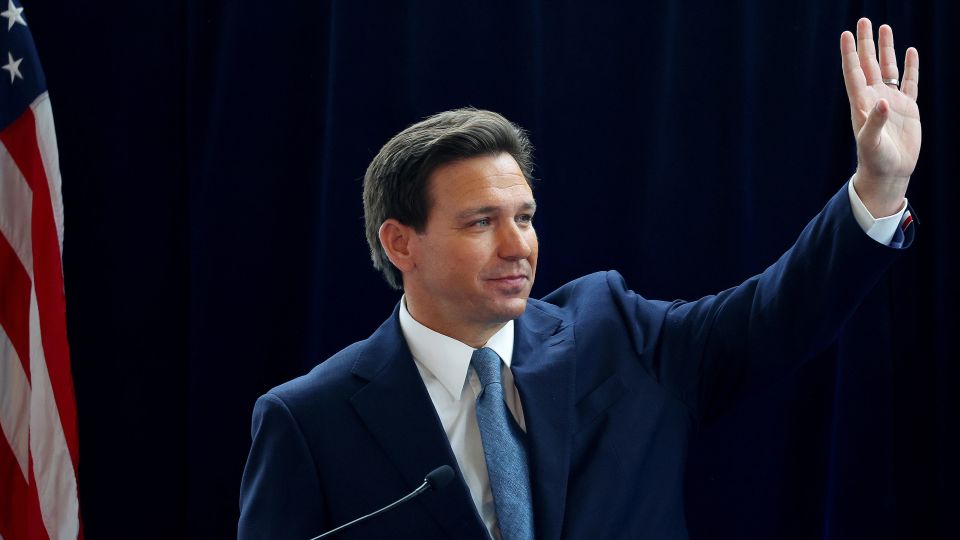
Florida Gov. Ron DeSantis will make his first appearance in Iowa on Friday, an unmistakable flirtation for a top-tier Republican presidential contender that brings his expected bid for the White House a step closer to reality.
LGBTQ, police relationship is fraught with violent history. Can department liaisons help?

This post was originally published on this siteA growing number of police departments have named LGBT liaisons and required anti-bias training, but experts and advocates say more needs to be done.
Tagged 1969 Stonewall riotsCommunity outreachDC Metropolitan PoliceLGBTQNational Center for Transgender EqualityNational Gay and Lesbian Task ForcePolice Reformpolice trainingUCLA School of Law